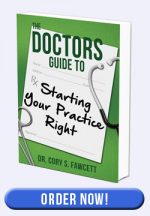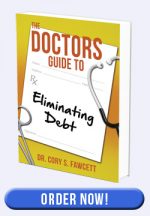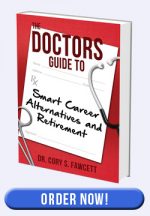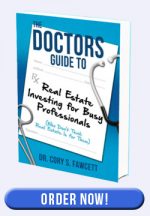(Want to meet me in person or attend my lectures? Join me at the White Coat Investor’s Financial Literacy and Wellness Conference, February 5-8, 2024 in Orlando, Florida. I will be giving two lectures at this amazing conference where I have been a speaker multiple times in the past. If you have some of my books, bring them with you to get them autographed at my book signing event. There will also be a few books available on site. A few of you can even have dinner with me! Hope to see you there. If you register by Nov 16th, you will also get the swag bag!)
We all dream of the day when we will retire and live a leisured life without the need to earn a living. Each of us choses a different age for this to begin. In medical school I chose age 50 as my target, and I actually retired at age 54. Some of us make and follow a plan and will not be surprised when we retire on target. Then there are those who hope for a leisured life in retirement but aren’t doing anything to make sure it happens or are actively sabotaging their dreams. These people will be in for a rude awakening when they retire with steak and champagne dreams on a mac and cheese budget.
Many of the pitfalls that can ruin a retirement nest egg are totally avoidable. Everyone who earns a decent income, as in every physician, should easily have a great retirement. So, let’s talk about the ways we may be blowing the great opportunity our good income provides.
1: Living beyond our means
This is the number one reason high income earners do not reach retirement with a substantial nest egg. After many years of living on a low income during college, medical school and residency, once we get that large physician income, we go crazy spending our money and amassing a large amount of debt.
I recently heard a new attending ask if he should pay down debt or invest his extra money. Reading about his situation I noted $1700 of monthly car payments! He should work on his spending problem before trying to decide where to invest.
If you are borrowing money to buy cars, carrying a balance on your credit cards, or have a home equity loan, you are either living beyond your means or making poor decisions.
Medscape does annual surveys of physicians and their money usage. The most recent survey I could find that stated net worth by age showed that of the physicians over age 60, 25% of them had a net worth of less than $1M. Yet only 5% of the group admitted to living beyond their means.
How hard is it for physicians to save up $1M by age 60? If we started saving from our first paycheck as a resident, like I did at age 26, we would have 34 years to save and accumulate compound interest. If we got an average return of 10%, like I did, we would need to save $290 a month to have a bank account worth $1M at age 60. Attending physicians should have a lot more than that available to save every month if they are living within their means.
There should be no physicians over the age of 60 with a net worth less than $1M. Yet a quarter of them don’t hit the mark. I still remember a conversation my father had with one of his physician classmates at a high school class reunion. He relayed this to me because I was a teen who wanted to become a doctor. His classmate told him that, “If a physician has been in practice for 10 years and is not set for life, they blew it.”
We must stop spending such a high percentage of our earnings and begin putting more of it away for retirement. Physicians can live a very nice life on 80% of our take home pay.
2: Leaving free money on the table
Some of us have an employer match available in our retirement plan as part of our employee contract. This is part of our salary. It amazes me to see so many physicians who do not put any money into their employer retirement plan, leaving this free match in the pocket of their employer. They mistakenly believe they need all their income available to spend now to live a good life.
Every time we put money into a 401(k) that is matched, we earn a 100% guaranteed return in one day without counting the tax savings. There is no other place we can get such a risk-free high return on our investment! NEVER miss out on an employer match on a retirement plan deposit. NEVER!
3: Raiding our retirement plans
Retirement plan money is put aside to help us pay our expenses during our retirement when we no longer earn an income. It is not for buying a house, remodeling a house, paying for our kid’s college expenses, medical bills, moving expenses, child support, alimony, bridging between jobs, helping our friend open a business, opening our next practice, or for anything else that is not a retirement expense.
When I oversaw the retirement plan at a business I owned, I was amazed at how many people cashed out their retirement plan when they left for a different job. I even advised them why they shouldn’t remove their money from their retirement fund, yet they took their money out anyway. Once removed, there is no way to get it back into a retirement plan.
DO NOT take money out of your retirement plans before you retire. NEVER! Don’t even consider it as one of your options.
4: Making risky investments with our retirement money
It is very important that our retirement money is there when we need it. It is reasonable to make stable investments such as stock mutual funds, bonds, CDs, or income producing real estate.
It is not acceptable to invest this money in “alternative” investments, or things that are especially risky. These include puts, calls, futures, options, derivatives, individual stocks, bitcoin, oil wells, day trading, IPOs, art, collectibles, junk bonds, or anything else promising a high return.
If you really want to take risks for an adrenaline high, invest money you can afford to lose, which you likely will, not the money you will need in retirement. Use only a very small portion of your wealth for these risky investments.
5: Spending from a Health Savings Account (HSA) before retirement
An HSA is a great savings vehicle. We can deduct the money we put into it, it grows tax free, and we will not pay any taxes when we use it for healthcare. That is a better deal than any other retirement account.
So, use an HSA as an additional retirement account. We should put in the maximum amount allowed and not spend it until we retire. Then only use it for healthcare needs. The bulk of our lifetime healthcare spending happens in our retirement years anyway.
6: Overusing debt
We are living in an era where society is working hard to normalize all kinds of poor choices, consumer debt being one of them. Many people now believe that buying a car is not possible without a car loan. Others believe that there is such a thing as good debt.
All debt is a burden. We must decide in each case if having a particular debt is a burden we are willing to add to our lives. Don’t we already have enough burdens? In most cases, the debt is a bigger headache than the value of what is purchased.
Most of the people who go through my financial makeover coaching program have a significant amount of debt, which is a major reason they need a financial makeover. Planning to eliminate their debt is critical to putting their finances in order. Life is far better if we are earning interest instead of paying interest. I have lived with and without debt and can personally say that life is far better without debt.
Start paying cash for purchases. Stop managing debt, begin eliminating it. Read my book The Doctors Guide to Eliminating Debt for more reasons why wiping out your debt is important and learn how to get rid of your debt once and for all. The new attendings who saddle themselves with $1,700 car payments right out of residency are making a grave mistake.
7: Overspending on our home
The single best decision to give ourselves a better retirement is to not overextend when we buy a house. Way too many physicians are house poor.
I saw a doctor in the hospital working after being in a car accident. She was not moving very well and clearly should have been home recovering from her injuries. The reason she was working so soon after her accident was to be able to pay her very large house payment. The house payment she chose was prohibiting her from taking the time off she needed to recover from injuries she sustained in a car accident! Talk about being house poor.
Choosing a house with a $2,000 a month lower payment goes a long way towards having a much more comfortable retirement life. $2,000 a month saved for 30 years (the mortgage term) invested in an index mutual fund that averages 8% a year will come to over $3M. If that account was spent at a rate of 4% per year during retirement, it would provide an extra $120,000 a year, or $10,000 a month.
Let that sink in. Saving $2,000 a month by buying a less expensive house will provide an extra $10,000 a month during retirement.
There are many more ways to blow our retirement savings accumulation. But if we can get these seven mistakes under control, life will be so much better during retirement. What have you done lately to improve your retirement savings?









